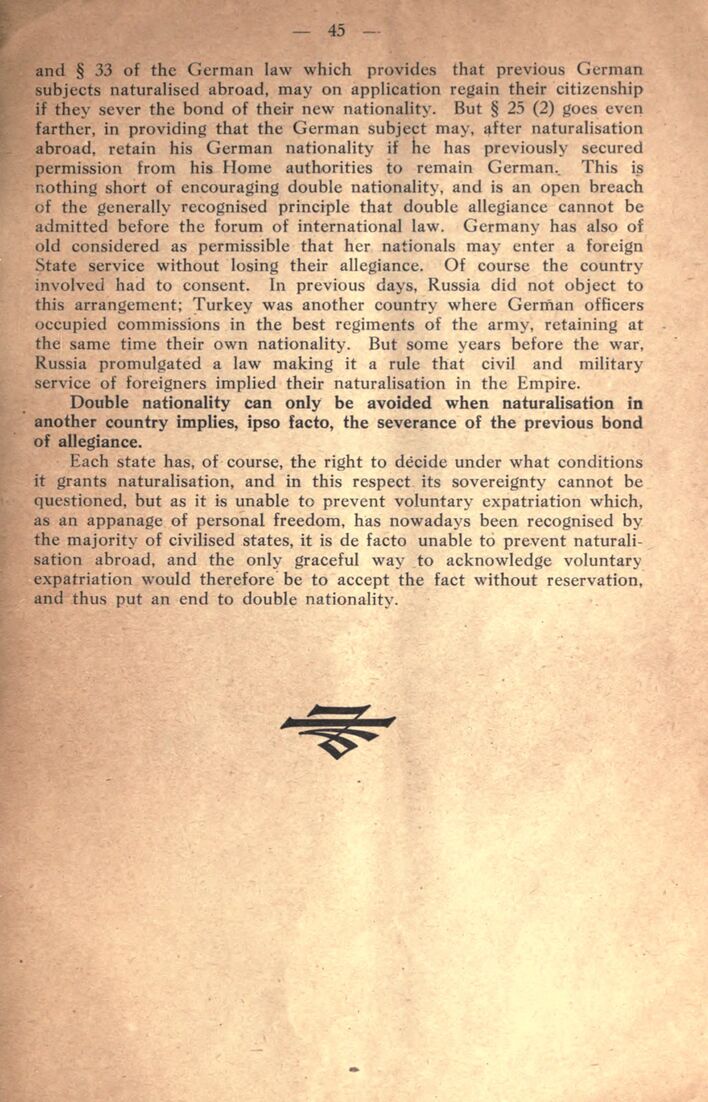
Full resolution (JPEG) - On this page / på denna sida - Chapter VI. Nationality. A plea for Reform. Paper read at a Committee on Nationality appointed by the International Law Association at 2 King's Bench Walk, Temple, London on February 24th 1922

<< prev. page << föreg. sida << >> nästa sida >> next page >>
Below is the raw OCR text
from the above scanned image.
Do you see an error? Proofread the page now!
Här nedan syns maskintolkade texten från faksimilbilden ovan.
Ser du något fel? Korrekturläs sidan nu!
This page has never been proofread. / Denna sida har aldrig korrekturlästs.
— 45 —
and § 33 of the German law which provides that previous German
subjects naturalised abroad, may on application regain their citizenship
if they sever the bond of their new nationality. But § 25 (2) goes even
farther, in providing that the German subject may, after naturalisation
abroad, retain his German nationality if he has previously secured
permission from his Home authorities to remain German.. This is
nothing short of encouraging double nationality, and is an open breach
of the generally recognised principle that double allegiance cannot be
admitted before the forum of international law. Germany has also of
old considered as permissible that her nationals may enter a foreign
State service without losing their allegiance. Of course the country
involved had to consent. In previous days, Russia did not object to
this arrangement; Turkey was another country where German officers
occupied commissions in the best regiments of the army, retaining at
the same time their own nationality. But some years before the war,
Russia promulgated a law making it a rule that civil and military
service of foreigners implied their naturalisation in the Empire.
Double nationality can only be avoided when naturalisation in
another country implies, ipso facto, the severance of the previous bond
of allegiance. r
Each state has, of course, the right to decide under what conditions
it grants naturalisation, and in this respect its sovereignty cannot be
questioned, but as it is unable to prevent voluntary expatriation which,
as an appanage of personal freedom, has nowadays been recognised by
the majority of civilised states, it is de facto unable to prevent
naturalisation abroad, and the only graceful way to acknowledge voluntary
expatriation would therefore be to accept the fact without reservation,
and thus put an end to double nationality.
<< prev. page << föreg. sida << >> nästa sida >> next page >>